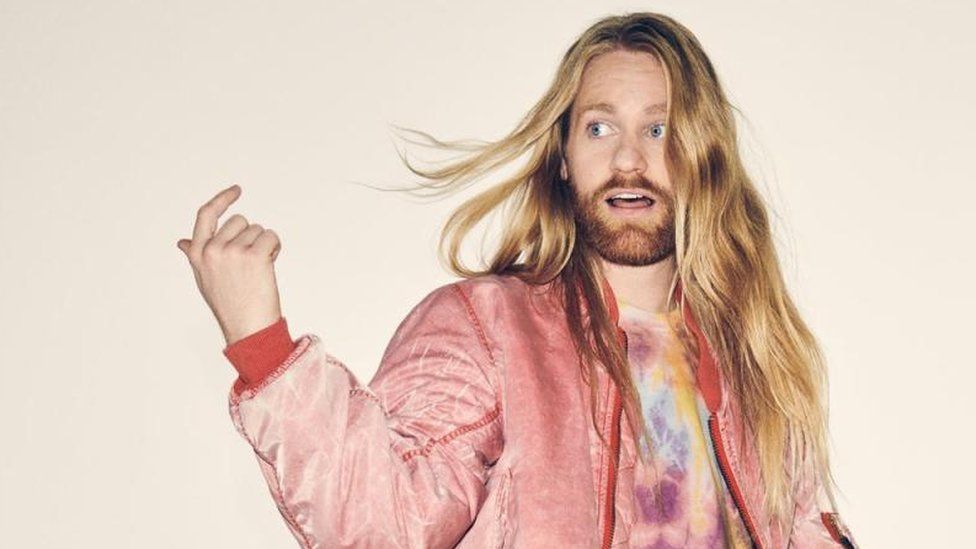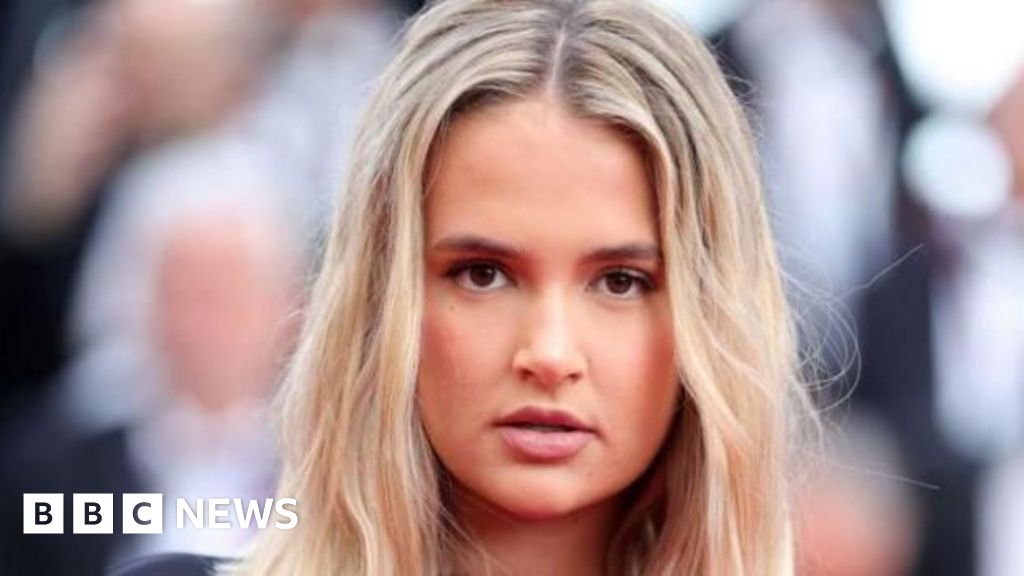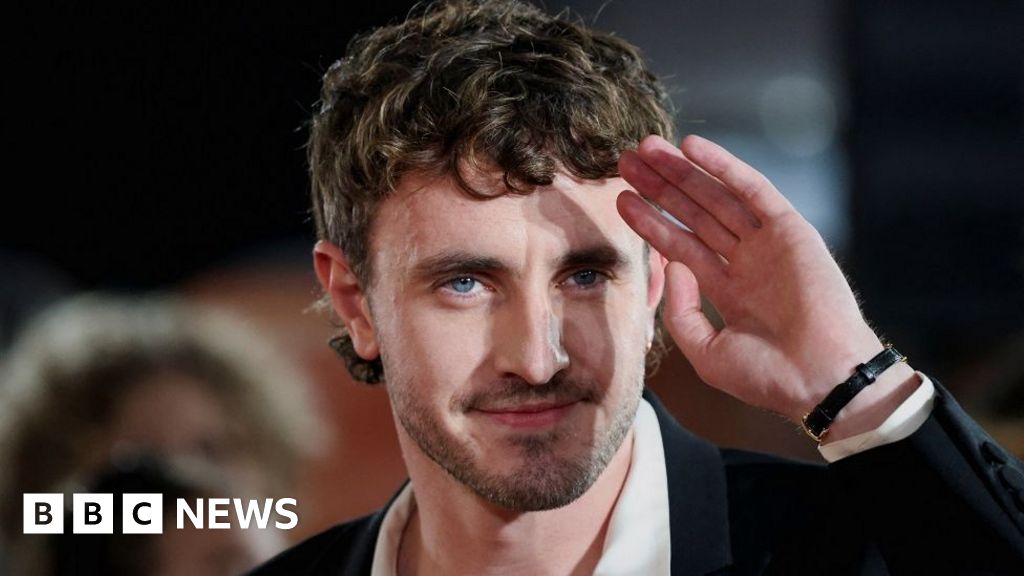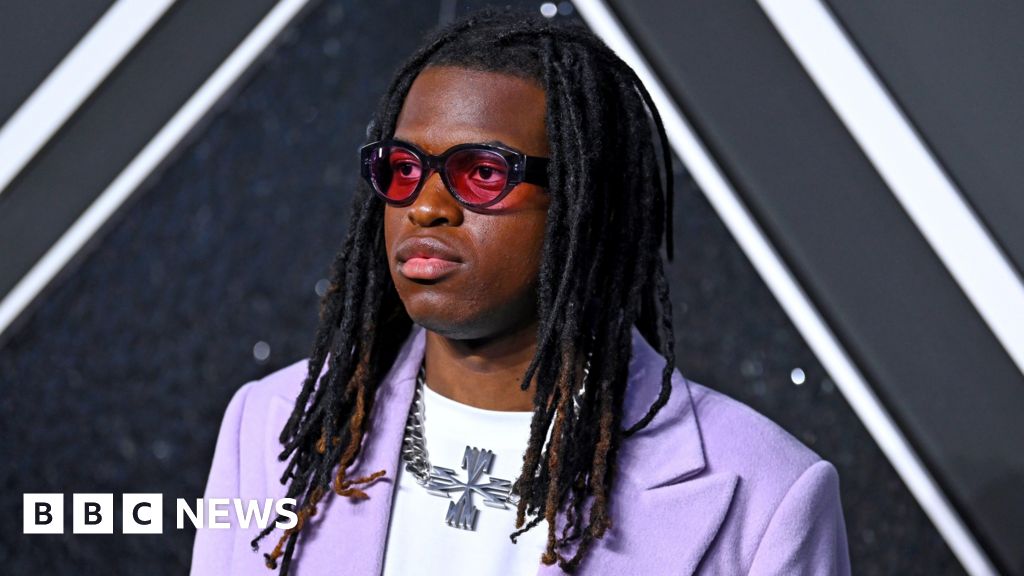ARTICLE AD BOX
 Image source, Simon Emmet
Image source, Simon Emmet
Sam Ryder now avoids surfing, in case it brings his music career to an untimely end
By Mark Savage
BBC Music Correspondent
Sam Ryder - Eurovision runner-up, human ray of light and possessor of pop's most piercing falsetto - is a man who emanates serious surfer vibes.
From his long blonde locks and laid-back demeanour to his tie-dye shirts and total lack of cynicism, he seems like he'd be perfectly at home performing a cutback or hanging 10 on the crest of a wave.
And that was true until four years ago, when he was almost killed in a wipeout.
"I was surfing in Hawaii and my board snapped. Then I got hit by a wave and I very nearly drowned," he says.
"It pushed me down so far into the water. And the turbulence of the water, the power, is incredible. Fighting against it, you feel like you've been hit by a bus."
With his muscles pummelled and his body battered, it took Ryder a week of bed rest to recover. Time in which he re-evaluated his life.
"Obviously, the golden rule in surfing is 'never underestimate the sea', but until it goes wrong, you can't fathom it," he says. "You're like, 'I am insignificant in this body of water'.
"But that day was important to me because I wanted to be very good at surfing and ride the big waves - but [the accident] put me back on my true purpose.
"I was like, 'You can't do the thing you love most, which is music and singing, if you're at the bottom of the sea'."
Image source, Getty Images
Image caption,The singer has toured all over Europe since his near-victory at Eurovision
The rest of the story you probably know. Ryder built an army of 14 million fans on TikTok during lockdown, thanks to his covers of Stevie Wonder, Chaka Khan and Britney Spears.
He was promptly signed by Parlophone Records, then selected by Dua Lipa's management team to represent the UK at the 2022 Eurovision Song Contest.
His song, Space Man, written in just 10 minutes, recalled the classic 1970s rock sounds of Queen and Sir Elton John, and ultimately earned the UK its best position at Eurovision since 1998.
"Eurovision was like being in a church," he recalls. "In that arena, there was so much joy and togetherness."
Warning: Third party content may contain adverts
Success came relatively late in life. At 33, Ryder is older than chart contemporaries like Ed Sheeran and Taylor Swift, but he has been making music for just as long.
"When I think back now to those years, I'm flabbergasted," he says of his pre-fame days. "What the hell was keeping me going? The crumbs of hope were so few and far between."
He made his debut in 2006 as the singer with rock band The Morning After, whose '80s-indebted power chord anthems arrived just as the music industry pivoted away from the rock revivalism of The Darkness and towards the R&B-infused pop of Justin Timberlake and Rihanna.
When The Morning After split in 2010, he became a stand-in guitarist for Christian rock group Blessed By A Broken Heart, then joined US hardcore band Close Your Eyes (as Sam Robinson), replacing original singer Shane Raymond.
"I joined them, I think, because I wanted my friends to see that I was still doing something cool. Like, 'Don't worry about me, I'm still almost making it in music. Look, I'm on tour in America. That's impressive, right?'"
But his heart wasn't truly in it. While he had been a fan of bands like Sum 41 and Good Charlotte as a teenager, he began to realise he had outgrown the music.
Warning: Third party content may contain adverts
Deflated, he went back home and joined his father's carpentry business - helping to lay the floor at Wembley Stadium, instead of singing under its famous arches.
After his surfing accident, he quit construction to set up a vegan cafe with his girlfriend Lois, and started singing in wedding bands, "initially because I wanted to earn some money, if I'm being completely honest".
It was a decision that changed his outlook on music forever.
"I remember the first time I did one [wedding], I was singing Whitney Houston and I had my eyes closed, and in my head I was telling myself, 'I'm smashing this song'.
"Then it ended, and I opened my eyes and no-one even realised I'd started the song, let alone finished it. It took me aback, like, 'Did I do something wrong?'
"But I quickly realised, of course, no-one cares about you. They're there for their family. You're there to provide the atmosphere.
"And that was crucial because, at that point, I stopped linking music with the perception of my friends and I started doing it from my heart."
Image source, Sam Ryder / Instagram
Image caption,The singer has been with his partner, Lois Gaskin-Barber, for 11 years
When the UK entered Covid lockdown in 2020, his diary emptied overnight. Undeterred, he started posting videos on TikTok, reckoning that "singing into my phone brought me the same amount of happiness as a live show".
The clips were simple - a man, his beard, a green lamp and an incredible voice - but there was something infectious about his joy in performing, whether he was blasting through Adele's Set Fire To The Rain or turning Aretha Franklin's Respect into an anthem about the great toilet paper shortage of 2020.
Pretty soon, stars like Alicia Keys, Sia and Justin Bieber were reposting his videos. As was the man who became his manager, David May.
"I was absolutely blown away by what I heard," he says. "His voice is... intimidating isn't the right word, but it's definitely impactful when you're stood next to him and it just comes out.
"It really does take you by surprise, how skilled he is."
Image source, Parlophone Records
Image caption,The singer's infectiously sunny demeanour is part of his appeal
This time last year, Ryder was deep into recording his debut album when the invitation to Eurovision came through.
It was by no means a simple decision, especially given the UK's recent woeful track record in the contest, but the singer's hard-earned experience paid off. This time, when he opened his eyes, everyone had noticed after all.
The experience put a rocket under his career and crystallised the theme of his debut album, There's Nothing But Space Man, which is out this week.
"I wanted to focus on the tenets of hope and faith and how to retain those things," he says.
"I've been making music since I was 13 years old, and it was always foot on the gas, full belief, full faith - even though I was absolutely bombarded with failure.
"You start asking yourself, 'What's gonna happen? Maybe I'm finished?' All these stupid thoughts that I know we all have.
"But now sitting here, looking back, I'm thinking, 'Wow, you should have been so excited.' I had no idea what was around the corner. And therein lies the lesson, I suppose. To remain hopeful over a long period of time."
Warning: Third party content may contain adverts
On his album, Ryder's story manifests as a lyrical obsession with stormy weather.
Rain falls, tempests rage and people are dragged under the surface - but the singer always finds the light, whether it's through the sheer force of self-belief (Tiny Riot) or the support of family and friends (Put A Light On Me, whose fleet-footed dance beats are a perfect foil for Ryder's booming voice).
It's not what you would call an unassuming record. Ryder is seizing his moment with both hands - and who can blame him?
This time last year, he says, he was still plagued with doubts about his career. But since coming second at Eurovision, he's sung at the Queen's Platinum Jubilee, toured Europe with Lewis Capaldi, and performed with Queen at Wembley Stadium - where he laid floorboards 15 years ago.
Image source, Kavin Mazur
Image caption,Ryder performed Somebody To Love with Queen at the tribute concert for Foo Fighters' drummer Taylor Hawkins
Later this month, he will ring out 2022 by hosting BBC One's New Year's Eve concert, accompanied by Mel C, Sigrid and Justin Hawkins from The Darkness.
The whole year has been "absolutely bonkers", he admits. "My feet have just about touched the ground, but not quite."
You could say he's still floating in space, man.

 1 year ago
31
1 year ago
31








 English (US)
English (US)